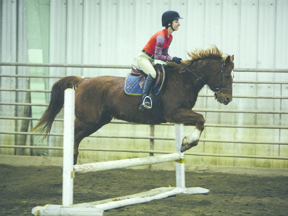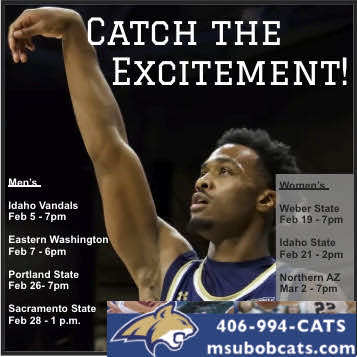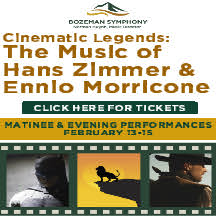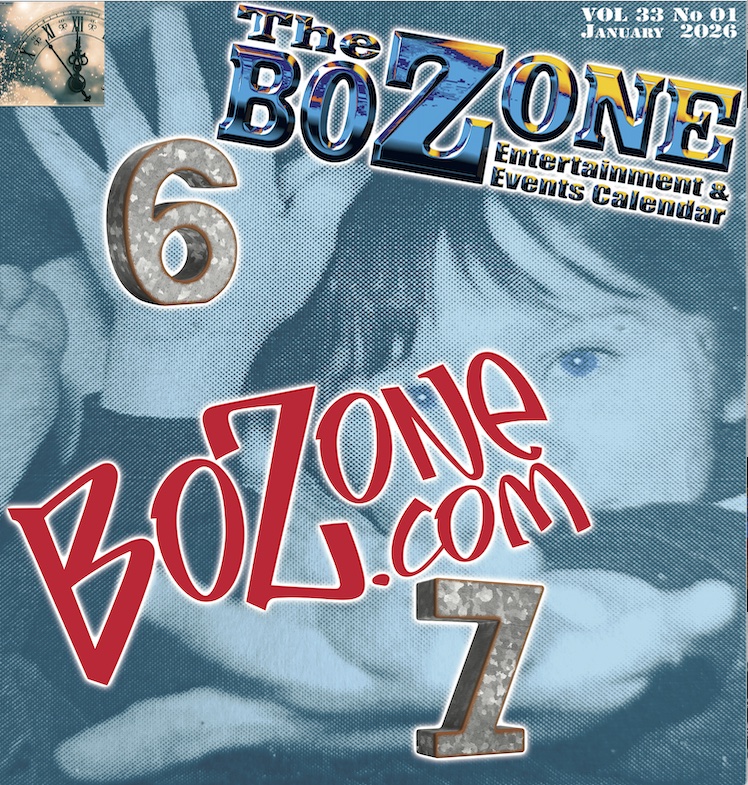From MSU News Service

Nicole Loya – Bob Miller Livestock Pavilion Photo by Adrian Sanchez-Gonzalez
Kayla Seaman remembers when she first tried out for Montana State University’s Intercollegiate Horse Show Association equestrian team in 2012. Tryouts for the club team were the same night as sorority rush, so she was only able to tour half the sorority houses before she had to leave for the equestrian club tryouts. “After tryouts, I decided the equestrian team was going to be what I chose,” said Seaman, a senior business major in MSU’s Jake Jabs College of Business and Entrepreneurship. Seaman, from Kalispell, wanted to attend MSU based, in part, on being able to participate in the IHSA Equestrians at MSU. Now, Seaman is captain of MSU’s IHSA English equestrian team, which is ranked first in the region, with only one more competition to go.
The team is currently leading the region with 45 points, competing against riders from Utah State University, Rocky Mountain College, University of Montana Western, and the University of Montana. IHSA is a national association that promotes competition horseback riding in both the English and western riding disciplines, where students compete individually and as teams at regional, zone, and national levels. MSU’s IHSA western team is also competing well, winning reserve high-point team by scoring the second-most number of points at a show four times this season. With 40 spots combined, MSU’s IHSA teams started the season at full capacity. At the beginning of each season, the teams hold tryouts—a requirement for new members. “Earning a spot on the team alone is an accomplishment,” Seaman said. “It is getting more and more competitive to be on the team each year. We had to turn down so many great riders due to the lack of space and amount of horses available.” Each IHSA equestrian can compete in a variety of disciplines, or classes, based on riding ability, ranging from walk-trot to three-foot jumping for English riders and walk-trot to reining for western riders. “With IHSA you’re riding for yourself, but also for your team,” Seaman said. Before the start of each show, the coach and team captain pick one rider in each class to compete for the team as the point rider, and at the end of the show that rider’s points are added to the team’s total.
Individual riders are awarded points based on their placement in each class. Unlike typical horse shows, the IHSA events follow a catch-ride policy. About 20 minutes prior to each class, the competitors draw numbers in order to identify the horse they will ride. The horses are donated for the class by local horse owners, and the IHSA students have never ridden the horses before. A handler helps the competitors mount each horse, and competitors are prohibited from touching the reins or the girth and moving the horse around to get a feel for the horse until the start of the class. “It’s pretty remarkable because in most equine sports, the most important asset is the bond you try and have with your horse,” said MSU’s IHSA President Madison Hoffman, a senior from Colorado, majoring in equine science in the MSU College of Agriculture. “Instead of forming that bond, IHSA riders must learn how to communicate with a variety of horses at different training levels and mental states,” said Hoffman, who rides English style. “You practice how to deal with the ride that you are on. You learn how fast you can ‘feel’ a horse.” Amy Morgan, owner of Summit (horse) Show Management, coaches the IHSA team, which practices every week with MSU’s equitation horses at the Bob Miller Pavilion. Both teams participate in organized clinics taught by trainers from all over the state and many members regularly take riding lessons. According to Emily Glunk, faculty adviser and assistant professor in the Department of Animal and Range Sciences in the MSU College of Agriculture, “[IHSA] is a really great way, particularly for new students, to find a place here.” “It’s not just when we’re competing that we are a team,” explained Carly Ruggles, a freshman from Issaquah, Washington, majoring in physical therapy in the MSU College of Education, Health and Human Development and equine science. “Outside of the show ring, we’re constantly working together to make the program run as smoothly as possible.” When they’re not competing, team members volunteer time at IHSA shows, FFA competitions, local barns, and equine stores. Ruggles said there is a great deal of camaraderie and support, from practice and training, to volunteering and just hanging out. “I’ve been involved in plenty of different teams in my life, from basketball teams to swim teams to tennis teams, but I’ve never felt as supported by my team as I have by this one,” she said. To end the regular season, the western team will compete February 18th–19th at Rocky Mountain College in Billings.
The English team will host a show at Tri-H Stables, 400 Vandyke Road in Bozeman, March 4th–5th. Regionals will follow directly after each show. •







